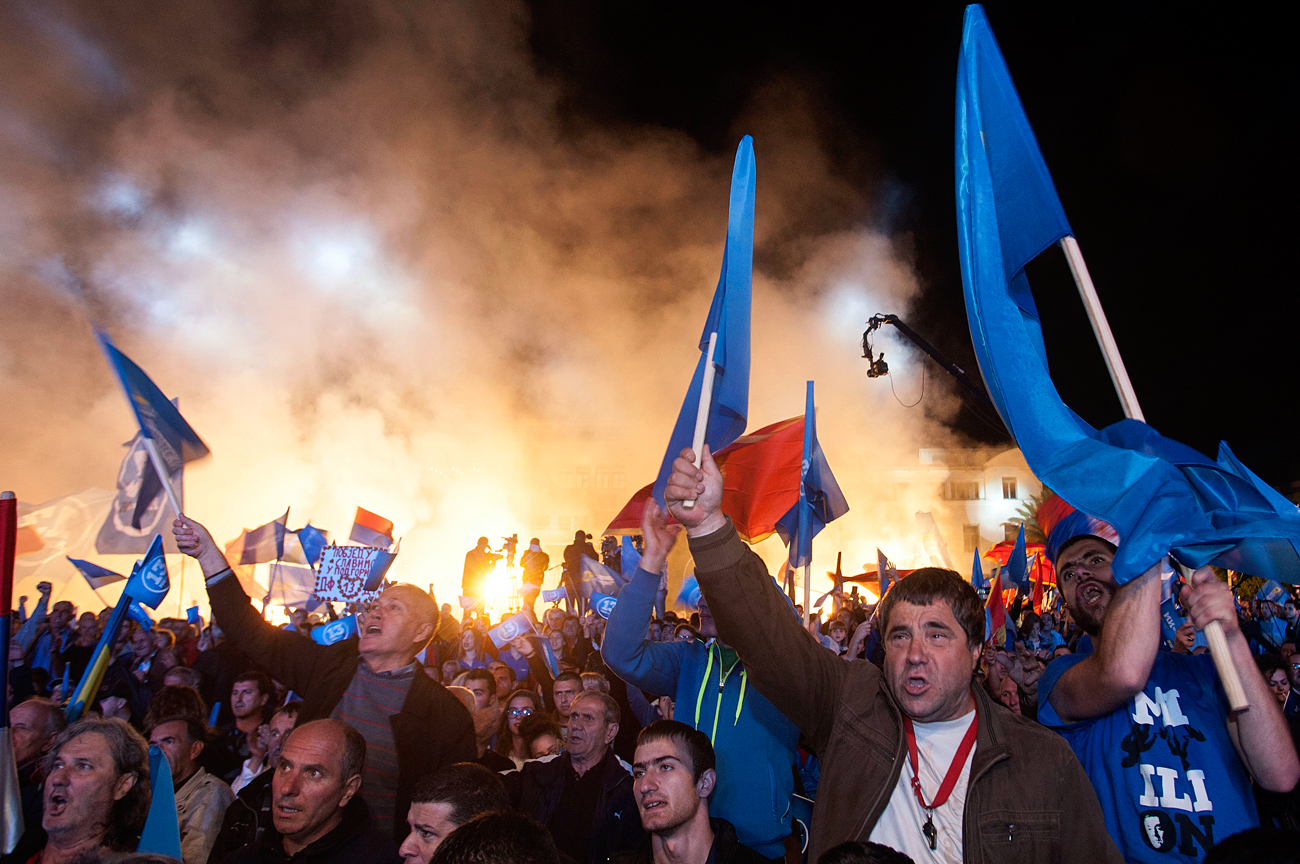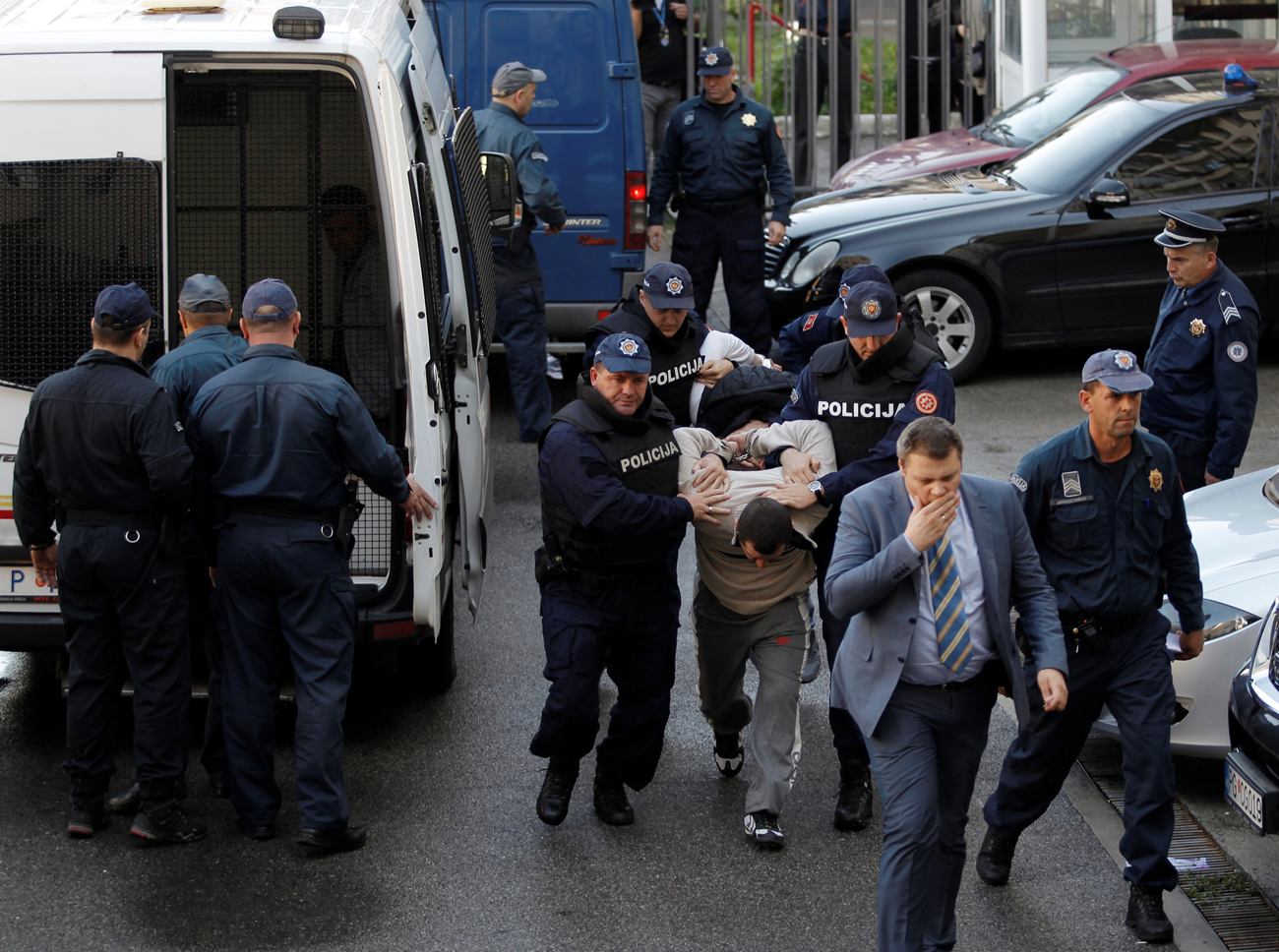Was Russia involved in plotting a coup in Montenegro?

Opposition Democratic Front supporters light torches during a pre-election rally in Podgorica, Montenegro, Friday, Oct. 14, 2016.
APIn an unexpected twist in the investigation into a failed coup attempt in Montenegro on during parliamentary elections on Oct. 16, the republic's Special Prosecutor Milivoje Katnic has announced that a group of Russian nationalists were plotting a coup aimed at assassinating Prime Minister Milo Djukanovic and bringing about a change of power in Montenegro.
However, the country's law-enforcement agencies have not provided evidence to prove official Russian involvement in the plot.
Katnic made his sensational announcement at an emergency news conference convened on Nov. 6. The gist of what he said is that a group of Russian nationalists were plotting to seize the parliament building on voting day and to kill Prime Minister Milo Djukanovic in order to prevent Montenegro's accession to NATO.
According to the prosecutor, the plotters did not believe there was much likelihood that power in the country could be changed through elections and opted for violent means.
Two nationalists from Russia
Katnic said that the group had been set up by "two nationalists from Russia" (he did not name them), who – together with a Serbian national – had established several cells on Serbian territory in order to carry out their criminal plot.
 Montenegrin police escort men to a court session with the state attorney in Podgorica, Montenegro, Oct. 16, 2016. / Source: euters
Montenegrin police escort men to a court session with the state attorney in Podgorica, Montenegro, Oct. 16, 2016. / Source: euters
These cells' task was to infiltrate a crowd during opposition protests following the announcement of election results, provoke bloodshed and seize the parliament building. The funding of the operation, according to the special prosecutor, came from the Russians.
At the same time, Katnic emphasized that he had "no proof that the Russian state was involved,” adding that the Montenegrin law-enforcement agencies "were continuing to cooperate with their Russian colleagues in the course of the investigation.”
But he did have "justified suspicions" that "a Montenegrin political force" was involved in the plot and that its representative was to declare the storming of the parliament building while speaking from the rostrum.
Although the special prosecutor did not name that political force, he was clearly hinting at the pro-Russian Democratic Front, which was planning protests following the election and whose leaders had openly promised to their supporters that they would seize power by Oct. 17.
Moscow denies any links to the suspects detained in Montenegro. "We categorically rule out any official involvement in any attempts to organize any unlawful actions," Kremlin press secretary Dmitry Peskov said, adding that "there had been no inquiries through official channels.”
Was there a coup?
Analysts’ suspicions have been raised by the fact that Prime Minister Djukanovic has already made similar accusations – against the Albanians. On the day of the parliamentary election, some 20 ethnic Albanians were arrested on suspicion of plotting an armed revolt in the country’s southern regions, where Albanians form the majority of the population in some districts.
The new prosecutor, Katnic, also linked his accusations to the day of the parliamentary elections. Five detained Albanians later had to be released after turning out to be not at all involved.
Given the scale of the alleged plot (landing parties from Moscow and Belgrade, arms caches, plans to use snipers and surround the army barracks), the government of Montenegro and Djukanovic personally are remaining calm, with no calls to convene a session of the Security Council or an emergency government meeting.
Djukanovic, meanwhile, has appeared on a local TV channel to once again repeat allegations of Russia’s interference and foreign (i.e. Russian) support of the opposition.
Based on articles published by Kommersant and Vzglyad
Read more: Kremlin denies Moscow role in Montenegro alleged coup plot>>>
Subscribe to get the hand picked best stories every week
All rights reserved by Rossiyskaya Gazeta.
Subscribe
to our newsletter!
Get the week's best stories straight to your inbox